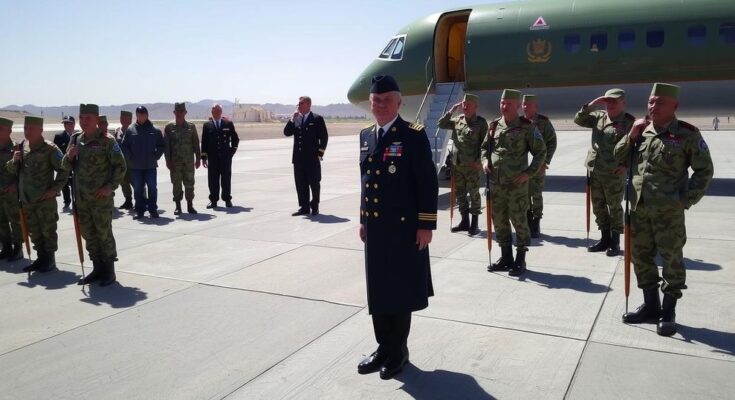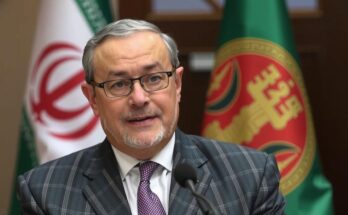Admiral Bauer, Chair of the NATO Military Committee, visited Mongolia from September 8 to 10, 2024. The visit reinforced NATO’s partnership with Mongolia, focusing on military cooperation, modernization of armed forces, and global security challenges. The discussions covered a range of topics including peacekeeping and integrated diplomacy. The transition to an Individually Tailored Partnership Programme in 2024 further strengthens this relationship.
From September 8 to 10, 2024, Admiral Bauer, Chair of the NATO Military Committee, visited Mongolia, reaffirming NATO’s enduring partnership with the nation. The visit was undertaken at the invitation of the Chief of the General Staff of the Mongolian Armed Forces. Admiral Bauer emphasized NATO’s dedication to enhancing dialogue and cooperation to bolster capabilities and interoperability, while also sharing insights from the 2024 Washington, D.C. Summit. The NATO-Mongolia alliance has been evident in various sectors such as education, peacekeeping, and capacity-building, driven by shared democratic values and mutual aspirations for peace.
During his visit, Admiral Bauer toured the Five Hills Peace Support Operations Training Center (PSOTC), a key establishment in Mongolia’s peacekeeping efforts for over ten years. This center plays a pivotal role in training and education within NATO’s Partnership network. Admiral Bauer’s interactions here highlighted Mongolia’s contributions to global stability through NATO missions.
On September 9, Admiral Bauer was honored with a military guard of honor as he visited the General Staff of the Mongolian Armed Forces. He engaged in discussions with Major General Ganbyamba Sunrev regarding the modernization of Mongolia’s armed forces and met with troops who have participated in NATO missions for over 16 years, including in Kosovo and Afghanistan.
Later that day, Admiral Bauer met with high-ranking officials, including the Brigadier General Gankhuyag.D from the Ministry of Defence and Mr. Byambajargal from the National Security Council. These discussions reinforced the significance of military cooperation in addressing global security challenges, emphasizing that partnership initiatives are rooted in mutual respect and tailored to the Partner’s needs.
On the final day of his visit, Admiral Bauer convened with representatives from Allied embassies in Mongolia, where he underscored the importance of integrated civilian and military diplomacy in fostering robust international partnerships. He concluded his visit by honoring Mongolia’s military heritage at the statue of Chinggis Khaan.
Since 2005, NATO and Mongolia have engaged in dialogue, with the Individual Partnership and Cooperation Programme initiated in 2012. Recently, Mongolia has shifted to an Individually Tailored Partnership Programme, covering diverse areas such as Women, Peace and Security, climate change, emergency management, human security, and cyber defense. Upcoming discussions will take place in October 2024 at NATO headquarters to further these collaborative efforts.
This significant visit underscores the longstanding relationship between NATO and Mongolia, which began in earnest in 2005. The partnership aims to enhance military cooperation and address global security issues through structured dialogue and various cooperative programs. The transition to an Individually Tailored Partnership Programme marks a new chapter in NATO-Mongolia relations, focusing on critical global challenges like security and human rights. By integrating Mongolia’s contributions to international peacekeeping missions, NATO aims to foster a more stable and cooperative security environment in the region.
Admiral Bauer’s visit to Mongolia symbolizes NATO’s commitment to strengthening its partnership with the country through enhanced dialogue and cooperation. The engagements during this visit not only aim to address contemporary security challenges but also highlight the historical contributions of Mongolia to international peacekeeping efforts. The ongoing collaboration and upcoming initiatives indicate a robust and evolving partnership that prioritizes mutual benefits and shared democratic values.
Original Source: www.nato.int




